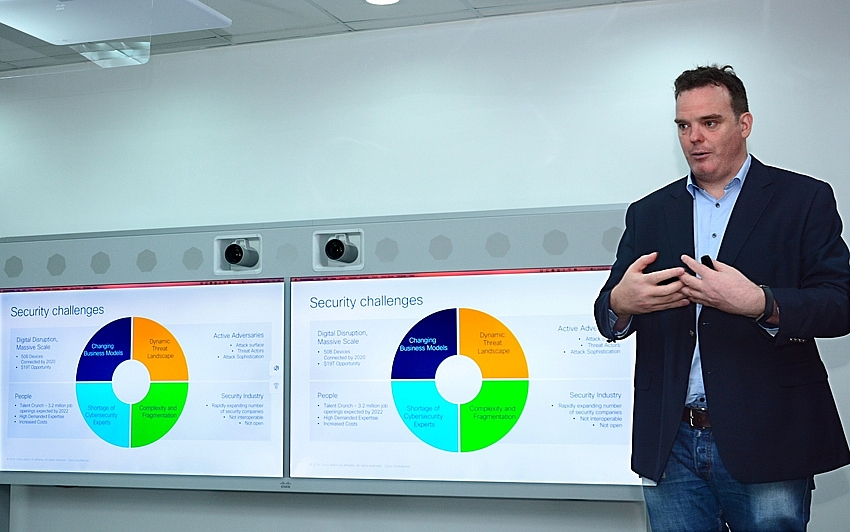
Kerry Singleton, director cybersecurity for ASEAN at Cisco
Among those surveyed, 33 per cent say an attack costs more than $10 million. This greatly exceeds the average in the Asia-Pacific (5 per cent), as well as the global average (3 per cent), suggesting that breaches in the country are severe. Among Southeast Asian countries, only 2 per cent of respondents in Singapore, 4 per cent in Indonesia, 5 per cent in Thailand and the Philippines, and 11 per cent in Malaysia said the cost of an attack exceeds $10 million.
The study shows that outages (when systems are down due to a breach) caused by cyberattacks are longer in Vietnam, with 14 per cent of respondents saying an outage lasts between one to five days. This is the highest number in Southeast Asia. The longer the systems are down, the higher the financial impact is on the company.
“Digital transformation is no longer just a vision in Vietnam, it is a reality. Businesses across the country are adopting technology and harnessing its power to overcome key challenges and unlock new growth opportunities. However, it is also increasing the risk of cyberattacks as more devices, both consumer and industrial, come online. Vietnam’s ability to tackle this threat will play a critical role in ensuring that it can reap the full benefits of the digital transformation wave,” said Thuy Thi Le Luong, managing director, Vietnam at Cisco.
“It is great to see that various stakeholders are realising this and are working towards tackling the issue. An increasing number of Vietnamese companies are looking to upgrade their IT infrastructure to improve their cybersecurity posture, with those in financial services and the public sector taking it the most seriously. The Vietnamese authorities are also playing their part in tackling this issue. Vietnam has set up a Cyberspace Operations Command to oversee government control of the Internet and military IT-related issues,” she added.
The study highlights that 50 per cent of companies in Vietnam receive more than 5,000 alerts per day. However, only 52 per cent of alerts are investigated. Vietnamese companies lag behind developed economies such as Singapore in remediating credible threats. Vietnamese companies remediate 44 per cent of credible threats.
This is despite the increased budget. 84 per cent of respondents in Vietnam say that up to a quarter of their security budget is spent on detecting attacks. Similarly, 85 per cent said up to half of their budget is spent on responding to threats. These budgets are the highest in the region. This shows that like the rest of the region, more work needs to be done in Vietnam to deal with the high volume of alerts in a more impactful manner.
The study highlights that 50 per cent of companies in Vietnam receive more than 5,000 alerts per day. However, only 52 per cent of alerts are investigated. Vietnamese companies lag behind developed economies such as Singapore in remediating credible threats.
At the same time, cyberattacks are evolving in nature, further intensifying the challenge for companies. Attackers no longer attack IT infrastructure only but also target operational technologies (OT) that impact the day-to-day functioning and running of a business. In Vietnam, 28 per cent of respondents say they have already seen cyberattacks along those lines, while 56 per cent expect this to be the case moving forward.
“Billions of new devices are getting connected to the Internet, and to each other, including those in an industrial environment. While this is creating opportunities for companies, it is also opening new challenges, not the least on the cybersecurity front. To be able to better protect themselves in this new environment, companies need to ensure that their security posture has three key elements, namely visibility, segmentation, and threat protection. The first enables them to see everything with complete visibility of users, devices, networks, applications, workloads, and processes. The second reduces the attack surface by preventing attackers from moving laterally east-west within a network, even if they break in via a weak link. The last helps to stop the breach by quickly detecting, blocking, and responding to attacks before hackers can disrupt operations,” says Kerry Singleton, director cybersecurity for ASEAN at Cisco.
Cisco (NASDAQ: CSCO) is the worldwide technology leader that has been making the Internet work since 1984. Their people, products, and partners help society securely connect and seize tomorrow's digital opportunities today.


